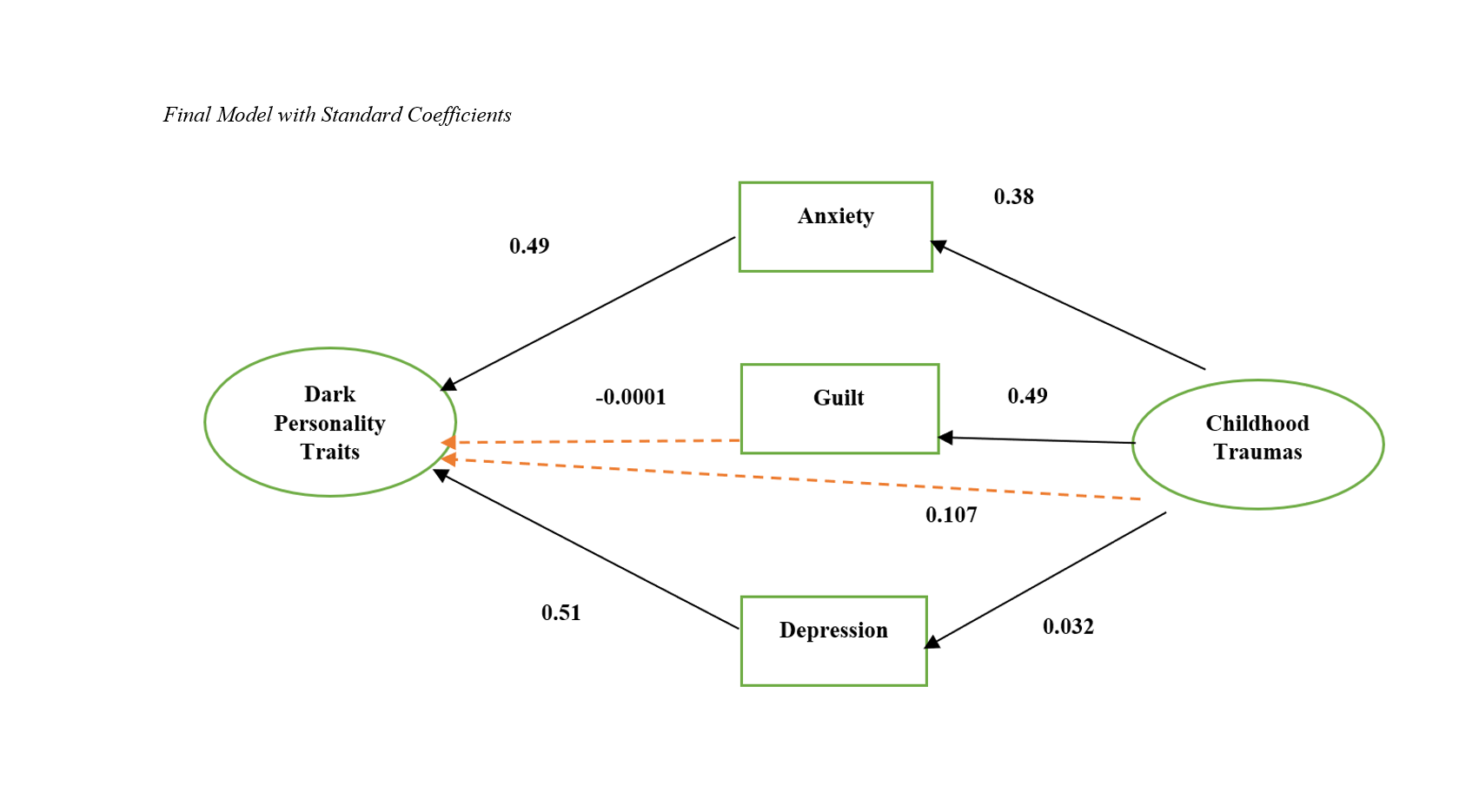Modeling Dark Personality Traits Based on Childhood Traumas with the Mediation of Guilt, Anxiety, and Depression
Abstract
Objective: Dark personality traits, which have been the focus of empirical and research attention in the last decade, include narcissism, antisocial behavior, and Machiavellianism. The aim of the current research was to model dark personality traits based on childhood traumas with the mediation of guilt, anxiety, and depression.
Methods and Materials: The present study was correlational and utilized structural equation modeling due to its objectives. The study population consisted of university students in 2021. Based on Cochran's formula, 382 individuals were selected via convenience sampling and responded to questionnaires. The Johnson and Webster (2010) Dark Personality Traits questionnaire, the Lovibond and Lovibond (1995) Anxiety and Depression scales, the Mosher (2008) Guilt Inventory, and the Bernstein et al. (1994) Childhood Trauma questionnaire were used in this research. Data were analyzed using Pearson's correlation coefficient and structural equation modeling. SPSS 22 and AMOS 18 software were utilized for data analysis.
Findings: The modeling results indicated that guilt did not play a mediating role in the relationship between childhood traumas and dark personality traits (p = .39), whereas childhood traumas had a significant indirect relationship with dark personality traits through anxiety and depression (p = .05).
Conclusion: Given the findings, it is concluded that dark personality traits are a consequence of childhood traumas, where anxiety and depression play a significant role in this process. Therefore, it is necessary to implement intervention strategies to prevent dark personality traits in students who have experienced childhood traumas
Downloads

Downloads
Additional Files
Published
Submitted
Revised
Accepted
Issue
Section
License
Copyright (c) 2024 Zeinab Jahangir Kalestan (Author); Afshin Salahiyan (Corresponding Author); Bita Nasrollahi (Author)

This work is licensed under a Creative Commons Attribution-NonCommercial 4.0 International License.








